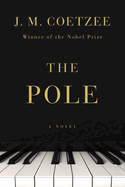
To tell a story is to risk boring an audience. To tell a story an audience has heard before risks boring them twice over. But The Pole, from Nobel Prize Laureate and two-time Booker Prize-winner J.M. Coetzee (Late Essays; The Schooldays of Jesus; The Childhood of Jesus), sounds the depths of its characters' extraordinary inner lives contained within their familiar shells.
Beatriz is a board member for a musical organization in the Gothic Quarter of Barcelona that invites esteemed performers for monthly recitals. A civic-minded wife of a successful banker and a mother living a comfortable bourgeois life, she is surprised to draw the attention of a visiting Polish pianist known for his unusually measured interpretations of Frédéric Chopin. She is amused but finds him pathetic and unattractive, and herself incurious. Nonetheless, his polite, sincere romantic affections grow on her, and she determines to allow herself some curiosity. Their brief involvement is gratifying though hardly transformative, until a final chapter explores what the affair leaves behind, and the consequences of artistry and love for their human carriers.
The Pole is a methodical story of classical love, told from the less-than-familiar perspective of the nearly indifferent she who is loved, rather than the familiar obsessive he who loves. With keen insight, deft and purposeful formal play, and simple but rhythmic prose, The Pole achieves a quiet, meditative mood--reminiscent of fine music--within which a rare kind of deep listening, and perhaps even human understanding, can occur. --Walker Minot, writer and editor

